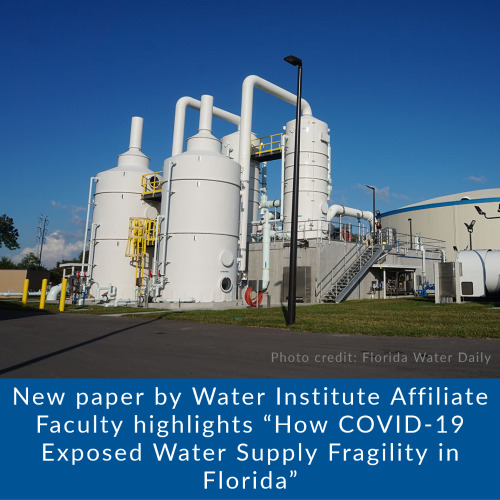New paper by Water Institute Affiliate Faculty highlights “How COVID-19 Exposed Water Supply Fragility in Florida”
In a recently published Viewpoint paper in Urban Science, Water Institute Affiliate Faculty Drs. Mary Lusk (Soil and Water Science), Lisa Krimsky (Florida Sea Grant & 2021 Water Institute Faculty Fellow) and Nicholas Taylor (Program for Resource Efficient Communities) highlight how the COVID 19 pandemic exposed the fragility of Florida’s public water supply and the need to build resilience in the face of uncertainties posed by population growth and climate change.
Abstract:
Healthcare demand for liquid oxygen during the COVID-19 pandemic limited the availability of oxygen needed for ozone disinfection of drinking water in several urban areas of Florida. While the situation reduced the state’s capacity to provide normal drinking water treatment for millions of people, calls for water conservation during the emergency period resulted in virtually no change in water consumption. Here, we point out that 38–40% of the potable water produced by one of the major utilities in Florida is not used for drinking water but instead is used for outdoor landscape irrigation. This suggests that emergency-level calls for reduced water use could have been made if outdoor irrigation was limited, but we present data showing that there was little change in public behavior, and the state was unable to meet necessary water use reductions during the emergency. This inability to meet short-term emergency water conservation needs foretells a long-term lack of resilience against other global change scenarios and suggests that much work is still needed to build resilience into Florida’s water future. We conclude this Viewpoint paper by calling for more urgent sociohydrological research to understand the coupled human-natural drivers of how water supplies respond to global change.
Full article: https://www.mdpi.com/2413-8851/5/4/90/htm
November 19, 2021


